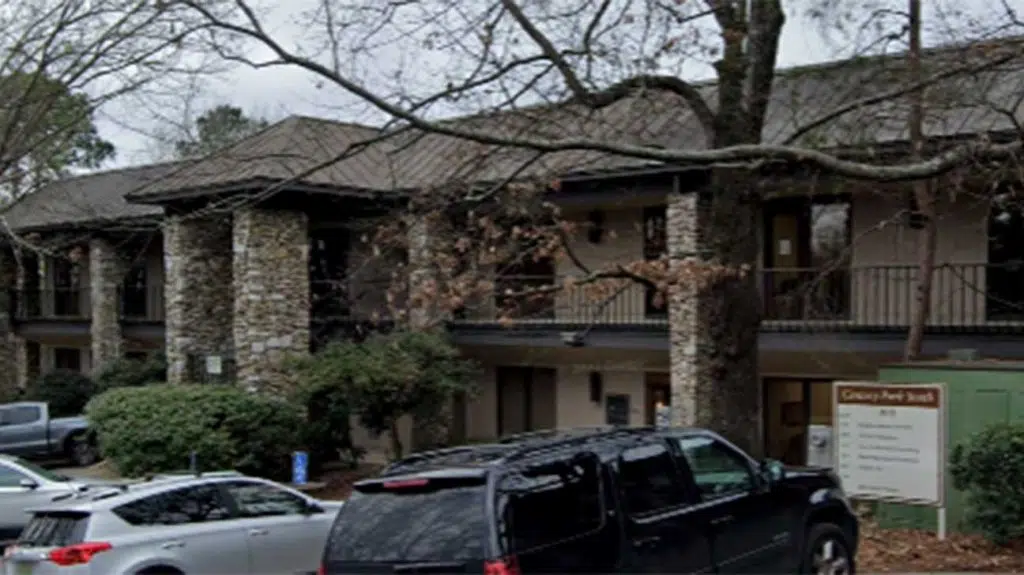
Alabama does not have many LGBTQ+ rehabilitation centers that exclusively serve the queer community.
With that said, there are a number of highly accredited, evidence-based programs that do offer many of the same services that you would find at an LGBTQ+ friendly rehab center.
LGBTQ+ Drug Rehab Centers In Alabama
To help you find programs that offer the services you need, our team has built a list of drug rehab programs and resources in Alabama.
Each facility listed is vetted for its accreditations and ratings.
While they may not have a separate program for LGBT people, they do offer scientifically sound approaches that can help address your individual needs.
Bradford Health Services, Birmingham, Alabama
Bradford Health Services is a network of substance abuse treatment providers in the southern United States.
This Joint Commission-accredited network has several locations in Alabama including outpatient treatment in Birmingham, AL.
All of their locations offer intensive outpatient programs (IOP) and outpatient addiction treatment.
Extended care and long-term residential treatment options are available at separate sites in Alabama as well.
Bradford Health Services does not currently have specialized programs for LGBTQ individuals.
Even so, these drug and alcohol treatment providers use evidence-based approaches that welcome everyone regardless of gender identity or sexual orientation.
Location and contact information:
300 Century Park S.
Ste. 100
Birmingham, AL 35226
(205) 547-2727
Prevalence Of Substance Use In The LGBTQ+ Community
Across the United States, rates of substance abuse in the LGBTQ+ community are higher than in the general population.
There could be any number of factors involved, but experts suggest that discriminatory behavior and cultural norms could partially explain this trend, as well as the heightened risk of mental health disorders.
Other factors that may contribute to higher rates of drug and alcohol abuse in the LGBTQ+ community include:
- rejection by family and friends
- self-isolation
- internalized homophobia
- anxiety
- depression
- lack of community support
- predatory marketing in social settings
- regular exposure to discrimination
- lack of equal access to healthcare
In short, the reactions and behavior of loved ones and authority figures can negatively affect the mental health of individuals within the LGBTQ+ community.
People who are affected this way may use drugs or alcohol as a form of self-medication, contributing to addiction issues.
What To Look For In A LGBTQ+ Drug Rehabilitation Program In Alabama
There are relatively few options for drug and alcohol rehab programs that are specifically designed for LGBTQ+ people in Alabama.
With that said, there are plenty of options that offer solid clinical approaches to dual diagnosis addiction recovery.
If you know what to look for, you can find detox and addiction treatment programs that offer services proven to address your unique needs.
Indicators of a productive, non-discriminatory program include:
- Commission on Accreditation of Rehabilitation Facilities (CARF) accreditation
- accreditation by the Joint Commission
- medical detoxification
- trauma-informed therapy
- cognitive behavioral therapy
- gender specific therapy
- peer support groups
- medication-assisted treatment
- medical services for transgender individuals
- treatment for co-occurring disorders
- aftercare
- LGBTQ+ affiliations
- LGBTQ+ staff
FAQs For LGBTQ+ Rehab Facilities In Alabama
If you’re looking for a credible rehab facility in Alabama for you or a family member, you may have questions.
Here are straightforward answers to some of the most common questions regarding LGBTQ+ rehab facilities in Alabama.
Do LGBTQ+ Treatment Facilities Offer Trauma-Informed Therapy?
LGBTQ+ addiction treatment centers in Alabama may provide trauma-informed therapy through residential inpatient treatment programs.
These programs may be divided between men and women if they are gender-specific, so they may not provide the most comfortable space for all members of the LGBTQ+ community.
Can A Rehab Center Discriminate Against Me For Being LGBTQ+?
Rehab centers cannot legally discriminate against you for being LGBTQ+. Gender and sexual identity are both protected classes in the United States.
What Payment Options Are Available At A LGBTQ Treatment Center?
If you are unable to afford treatment at a LGBTQ+ rehab, you could discuss payment options with your local pride center and the finance department at the treatment center.
Rehabilitation centers often accept private health insurance referrals, Medicare, and Medicaid.
If those options do not work for you, you may qualify for government grants or an adjusted rate through your health treatment center.
Do LBGTQ+ Treatment Facilities Offer Inpatient Treatment?
Inpatient treatment is available in Alabama.
These programs do not advertise specific LGBTQ+ programs, so choosing an inpatient program would depend on the staff, the mission, and your own comfort.
Find A LGBTQ Rehab Center Today
Addiction is a serious medical condition that requires a safe environment to ensure long term recovery.
If you are struggling to find options that fit your needs in Alabama, call our helpline to learn more.
Published on August 2, 2022
Addiction Resource aims to provide only the most current, accurate information in regards to addiction and addiction treatment, which means we only reference the most credible sources available.
These include peer-reviewed journals, government entities and academic institutions, and leaders in addiction healthcare and advocacy. Learn more about how we safeguard our content by viewing our editorial policy.
- Commission on Accreditation of Rehabilitation Facilities (CARF) International — Find a Provider
http://www.carf.org/providerSearch.aspx - National Institute on Drug Abuse (NIDA) — Substance use and SUDs in LGBTQ* Populations
https://nida.nih.gov/research-topics/substance-use-suds-in-lgbtq-populations - National Institute of Health (NIH) — The Relationship Between Discrimination and Substance use Disorders Among Lesbian, Gay, and Bisexual Adults in the United States
https://www.ncbi.nlm.nih.gov/pmc/articles/PMC2937001/ - Substance Abuse and Mental Health Services Administration (SAMHSA) — Alabama Behavioral Health Barometer
https://www.samhsa.gov/data/sites/default/files/reports/rpt32817/Alabama-BH-Barometer_Volume6.pdf - Substance Abuse and Mental Health Services Administration (SAMHSA) — Find Treatment
https://findtreatment.gov/

